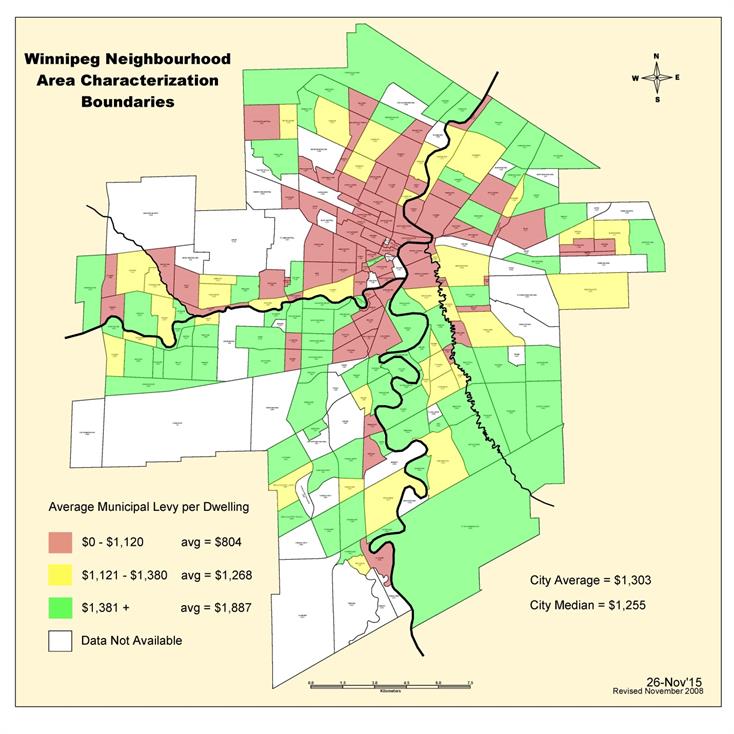Tomorrow, October 26, Winnipeg’s City Council will vote on the Impact Fee By-law. This is a significant fee that will negatively impact the cost of home ownership in Winnipeg. We have been asked many questions about this new fee and have summarized them below with answers.
Why does it seem like some communities are being singled out over others in this fee? How is this fair?
The City has determined growth fees will be charged to what they have labelled as ‘new and emerging communities’ because they claim newer communities are not paying their share of infrastructure costs. This is false; new communities provide a net benefit to the City of Winnipeg through the collection of higher property taxes. The net benefit of new communities has been proven through multiple cost-benefit analyses, including this one done in 2014 by the chartered accounting firm Deloitte. The proposed fees are not fair to new-home owners as the property taxes collected in new communities are double, on average, the taxes paid in older communities.

Source: 2015 Municipal Assessment Data by Neighbourhood, 2011 Census by Neighbourhood, Building permits 2012-2014
In addition to higher property taxes, new communities are only built once a Development Agreement is signed with the City of Winnipeg. A development agreement is a contract between the City and a developer that outlines all the things a developer must provide and pay for in a neighbourhood, as well as any off-site costs that were determined at the outset of the agreement. These legal agreements are negotiated before a developer begins any new development as all of the costs need to be considered in advance to ensure a new project is viable.
Development agreements aren’t being considered under this new growth fee. New-home buyers will be charged the growth fee even though the cost of the lot contributed to previously negotiated off-site infrastructure costs with the City of Winnipeg. New-home owners in new communities will be paying twice for off-site infrastructure costs.
Why are communities at one end of the city paying for infrastructure in other areas? The proposed fees don’t seem to be aligned with the costs the city is attributing them to.
The City will be collecting these fees and putting them toward any project they choose. Those paying the fee may never see the benefit in their area from the extra tax they will have to pay.
The fee amount is not at all tied to the impact of new development. The fee is charged based on the square footage of a home, which makes no difference to the impact that a house has on the infrastructure required. This is a punitive charge on the size of a residence, whether it is a house, condo, or apartment.
We’re being told other major cities have growth fees. What are some of the big differences between the proposed fees in Winnipeg and those in other places like Calgary or Vancouver?
The real estate markets in cities like Calgary and Vancouver have higher prices the closer to you get to the centre, so the property taxes collected are greater than the ones collected from houses on the edge of town. Growth fees in these cities are required to offset the lower property taxes collected and fewer funds available to pay for the new infrastructure in those cities' edge communities.
Winnipeg is the opposite – new homes on the outer edges of the city are assessed higher than established communities in the core area. Winnipeg’s average tax rates are lower the closer to the centre that you get. Because the City of Winnipeg has vowed not to increase property taxes, the decision to levy additional fees on new communities would mean those that are already paying the most will be paying even more. Not only is this an unfair practice, but the city will still be raising property taxes in a non-transparent way.
I heard the City cut back the fee, what is it now? Will it negatively impact the housing market?
The proposed fee for residential development has been reduced to just over $9,000 for an average 1,800 square foot home and only applicable to ‘new and emerging’ communities. This fee will still negatively impact the affordability of home ownership in Winnipeg and will unfairly charge those who pay the most in taxes pay even more. More importantly, the fee is an arbitrary number that is not correlated to the impact of new development or the cost of new infrastructure.
I have read that developers are asking for a ‘Plan Based Approach’ to growth fees and development in Winnipeg – doesn’t the city already have a plan called OurWinnipeg in place? What is missing in the City’s current plan?
The OurWinnipeg plan released back in 2011 provided a great overview of the vision for development in Winnipeg. However, many of the detailed plans to support this conceptual document have yet to be developed. These types of plans exist in in other major cities that have growth fees and their fees are built upon these detailed plans.
The developer-proposed ‘plan based approach’ to growth would involve the key stakeholders in Winnipeg’s future working together to complete the more detailed aspects of planning that this document requires. A plan-based approach involves creating plans for Winnipeg’s future growth; it determines where people will live, what infrastructure is needed to support new growth, and how much it will cost. It then attributes those projected costs to the measured impacts of new development. The result would be a fair and legal formula to support positive and sustainable growth charges in Winnipeg. As a developer, Qualico Communities is ready and willing to work on this plan if the City is, but they must not pass the proposed fee in its current form, which is growth-prohibitive and unjustified.
If you do not support the implementation of an unjustified growth fee, contact City Council todayand tell them to vote 'no' on the Impact Fee By-law.